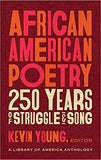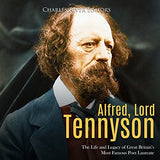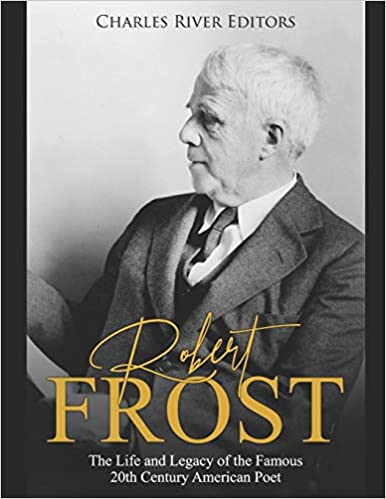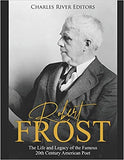Robert Frost: The Life and Legacy of the Famous 20th Century American Poet
ISBN: 9781693832673
$9.99
*Includes pictures
*Includes a bibliography for further reading
“I'd like to get away from earth awhileAnd then come back to it and begin over.May no fate willfully misunderstand meAnd half grant what I wish and snatch me awayNot to return. Earth's the right place for love:I don't know where it's likely to go better.I'd like to go by climbing a birch tree,And climb black branches up a snow-white trunkToward heaven, till the tree could bear no more,But dipped its top and set me down again.That would be good both going and coming back.One could do worse than be a swinger of birches.” – Robert Frost, “Birches”
Of all the authors and poets American schoolchildren may be exposed to over the course of their education, Robert Frost is often one of the first, and on rare occasions that he is not, it is still a near certainty that some of his most famous poems will be discussed at some point. Many will have memorized “Stopping by Woods on a Snowy Evening” before finishing grade school or will instantly recall the end of “The Road Not Taken.”
Frost may not be as remembered or influential as other American literary giants, or even poets such as Emily Dickinson and Walt Whitman, but his career was historic in terms of its length and breadth of accomplishments. Over the course of several decades, Frost became the first to win four Pulitzer Prizes for Poetry, and he also earned such recognitions as a Congressional Medal of Honor before being made the poet laureate of Vermont shortly before the end of his life. The many works he put out and the various styles of prose all greatly influenced his contemporaries and future generations of writers, even as he ably described a rural America of a seemingly bygone era and managed to instill universal ideas and teachings therein. Poet Amy Lowell may have described his abilities best early on in Frost’s career, writing of him, “He tells you what he has seen exactly as he has seen it. And in the word exactly lies the half of his talent. The other half is a great and beautiful simplicity of phrase, the inheritance of a race brought up on the English Bible. Mr. Frost's work is not in the least objective. He is not writing of people whom he has met in summer vacations, who strike him as interesting, and whose life he thinks worthy of perpetuation. Mr. Frost writes as a man under the spell of a fixed idea. He is as racial as his own puppets. One of the great interests of the book is the uncompromising New Englander it reveals. … Art is rooted in the soil, and only the very greatest men can be both cosmopolitan and great. Mr. Frost is as New England as Burns is Scotch, Synge Irish, or Mistral Provençal.”
*Includes a bibliography for further reading
“I'd like to get away from earth awhileAnd then come back to it and begin over.May no fate willfully misunderstand meAnd half grant what I wish and snatch me awayNot to return. Earth's the right place for love:I don't know where it's likely to go better.I'd like to go by climbing a birch tree,And climb black branches up a snow-white trunkToward heaven, till the tree could bear no more,But dipped its top and set me down again.That would be good both going and coming back.One could do worse than be a swinger of birches.” – Robert Frost, “Birches”
Of all the authors and poets American schoolchildren may be exposed to over the course of their education, Robert Frost is often one of the first, and on rare occasions that he is not, it is still a near certainty that some of his most famous poems will be discussed at some point. Many will have memorized “Stopping by Woods on a Snowy Evening” before finishing grade school or will instantly recall the end of “The Road Not Taken.”
Frost may not be as remembered or influential as other American literary giants, or even poets such as Emily Dickinson and Walt Whitman, but his career was historic in terms of its length and breadth of accomplishments. Over the course of several decades, Frost became the first to win four Pulitzer Prizes for Poetry, and he also earned such recognitions as a Congressional Medal of Honor before being made the poet laureate of Vermont shortly before the end of his life. The many works he put out and the various styles of prose all greatly influenced his contemporaries and future generations of writers, even as he ably described a rural America of a seemingly bygone era and managed to instill universal ideas and teachings therein. Poet Amy Lowell may have described his abilities best early on in Frost’s career, writing of him, “He tells you what he has seen exactly as he has seen it. And in the word exactly lies the half of his talent. The other half is a great and beautiful simplicity of phrase, the inheritance of a race brought up on the English Bible. Mr. Frost's work is not in the least objective. He is not writing of people whom he has met in summer vacations, who strike him as interesting, and whose life he thinks worthy of perpetuation. Mr. Frost writes as a man under the spell of a fixed idea. He is as racial as his own puppets. One of the great interests of the book is the uncompromising New Englander it reveals. … Art is rooted in the soil, and only the very greatest men can be both cosmopolitan and great. Mr. Frost is as New England as Burns is Scotch, Synge Irish, or Mistral Provençal.”




